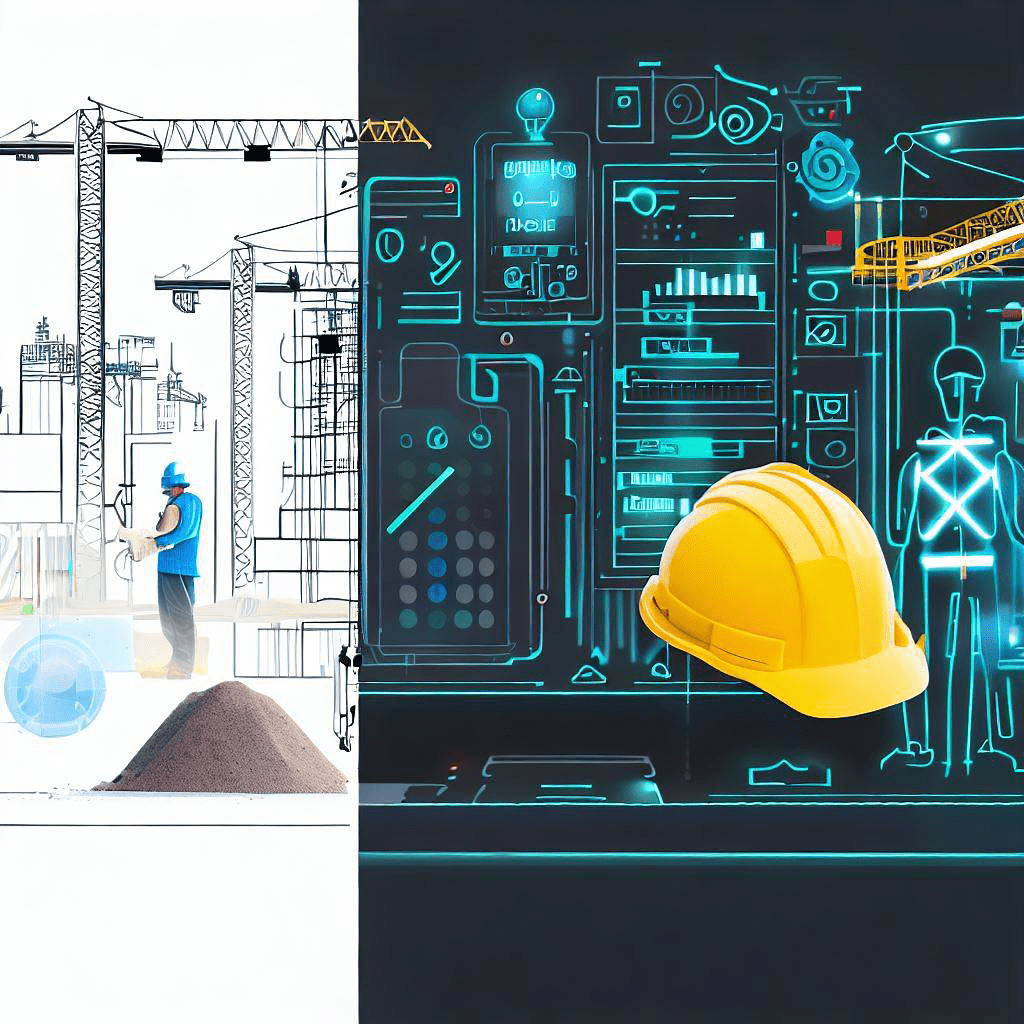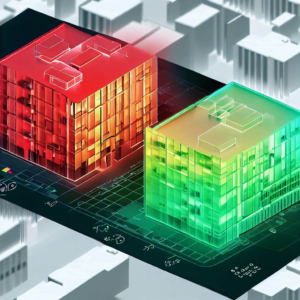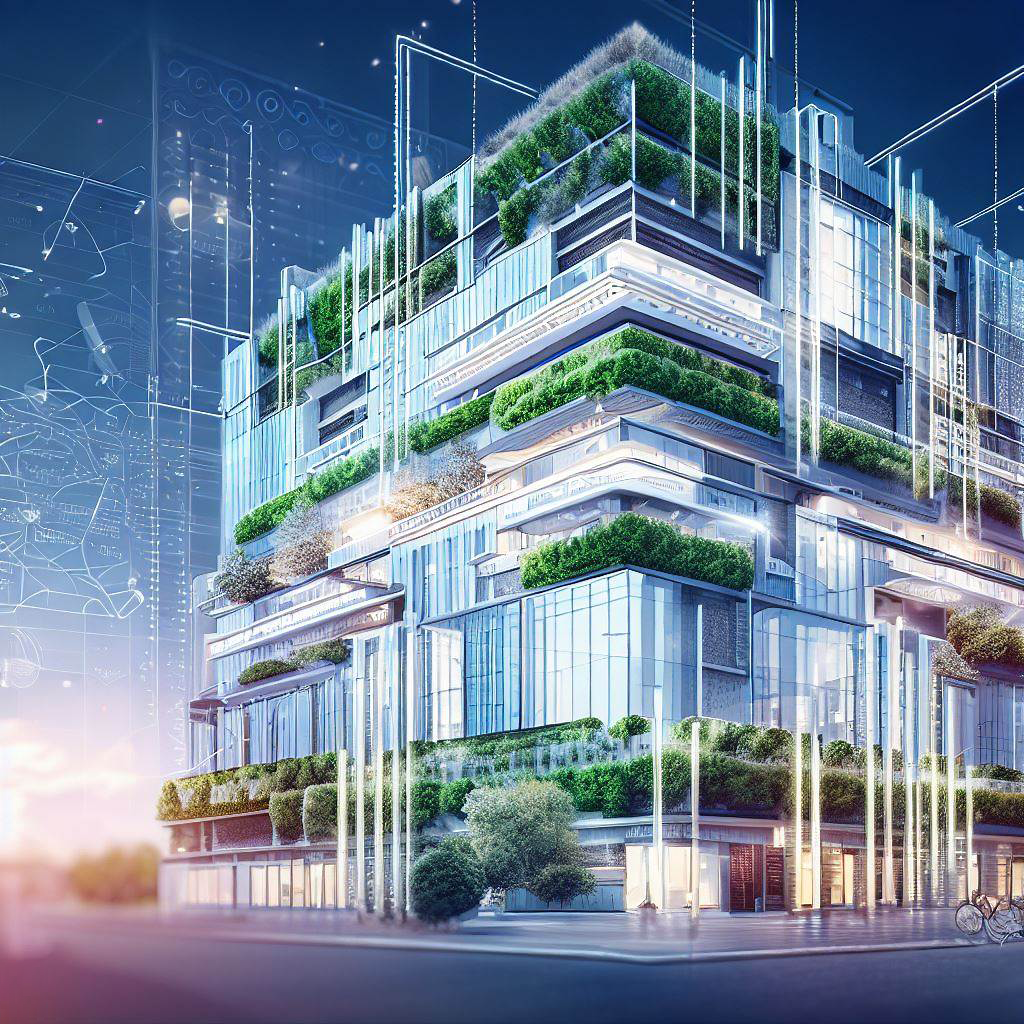The construction bidding projects has remained relatively unchanged for decades. Teams still spend countless hours compiling project data, estimating costs, and creating proposals. But this antiquated approach often leads to inflated budgets, missed deadlines, and frustrated clients.
Fortunately, recent advances in artificial intelligence (AI) are disrupting the status quo. AI-powered communication in construction and solutions can analyze reams of data, identify cost-saving opportunities, and automate bidding in a fraction of the time. As a result, property management teams and contractors are tightening budgets, accelerating timelines, and delivering more value to their clients.
The Challenges of Traditional Construction Bidding Process

For most commercial property management teams, bidding projects is a necessary evil. The process is often manual, disjointed, and buried in uncertainties. Typical pain points include:
• Inaccurate Cost Estimation
Creating detailed cost breakdowns across hundreds of line items is time-intensive. Teams estimate prices based on intuition rather than data. This leads to inflated budgets with little room for value engineering.
• Protracted Timelines
Complex proposals can take weeks or even months to compile. Obtaining historical data is difficult, and collaborating across siloed teams proves challenging. This hampers the ability to quickly deliver competitive bids.
• Opaque Communication
Lack of visibility into bid status causes misalignment between team members. Last-minute changes often derail carefully constructed timelines. Such communication breakdowns result in missed deadlines and confusion.
• Limited Scalability
As portfolios grow, managing an increasing number of bids across various projects becomes unscalable. There are only so many bids a team can manually develop at once.
These perennial issues boil down to three root causes – data availability, process complexity, and lack of transparency. AI for property management has the potential to address each problem area.
How AI Enhances Construction Bidding Process

AI encompasses an array of technologies including machine learning, deep learning, natural language processing, and more. When applied to the construction bidding process, AI can:
• Analyze Historical Data
By examining millions of data points from past projects, AI algorithms identify cost trends and patterns. The system learns to accurately predict itemized costs based on a project’s parameters. This prevents over- or underestimation.
• Automate Document Creation
AI tools can populate templated proposals using key project metrics and historical data. RFP responses and client deliverables can be auto-generated with the latest figures and specifications.
• Optimize Cost Management
Algorithms continuously monitor data from past bids and industry benchmarks. AI for Construction Cost Estimation, let you identify opportunities to refine budgets without compromising quality. This allows teams to deliver competitive pricing to clients.
• Improve Communication
Chatbots and other AI aids provide 24/7 visibility into bid statuses. Automatic alerts notify teams of changes or delays, ensuring alignment. AI also facilitates information discovery, allowing rapid access to required data.
• Scale Seamlessly
With real-time access to centralized, upto-date bid data, property management teams can efficiently manage and collaborate on an ever-growing number of projects. AI alleviates capacity constraints.
Unlocking Potential of AI in Energy Management

For property management teams focused on energy efficiency and sustainability, AI in energy management holds great promise.
• Energy Audits and Benchmarking
By continuously analyzing utility meter data, AI identifies anomalous consumption patterns. This enables accurate audits to pinpoint savings opportunities, equipment faults, and needed maintenance. AI can also automate regulatory benchmarking and reporting.
AI in Construction Case Studies
Energy software company Bidgely decreased audit costs by $450 per building for Ports America by using AI-driven energy disaggregation.
• Renewables Management
Sophisticated algorithms forecast solar and wind generation based on weather data. This optimizes onsite renewable energy consumption. AI also predicts optimal solar sizing and battery storage needs for future projects.
Example
Google leverages DeepMind AI to improve wind farm energy production by 20%.
• Sustainability Reporting
Natural language generation summarizes volumes of energy and emissions data into comprehensive, investor-grade sustainability reports. Automated reporting simplifies mandatory disclosure compliance.
Use Case
Workday decreased sustainability reporting time for clients from weeks to minutes using AI writing assistant Articulate.
• Predictive Maintenance
By analyzing sensor, weather, and work order data, AI models identify anomalies and predict maintenance needs for HVAC, boilers, chillers. This minimizes downtime.
Example
Johnson Controls decreased critical equipment downtime by 50% using machine learning for smart equipment maintenance.
Regional Nuances to Consider
Not all property portfolios reside in a single market. Management teams often oversee buildings across multiple geographies. This is where AI delivers localized insights.
• Materials Cost Variations
Construction materials like lumber, steel, and concrete see significant regional price fluctuations due to logistics and local supply-demand dynamics. AI tools analyze commodities pricing in each location to accurately estimate costs.
• Labor Availability and Rates
The availability and hourly rates for tradespeople like electricians, plumbers, and carpenters vary by city based on union contracts and labor pool. AI incorporates these nuances into project budgeting.
• Local Policy Requirements
Construction and permitting policies differ across states and municipalities. AI algorithms integrate the latest compliance rules and code revisions for each location into proposals and planning.
• Portfolio Optimization
For multi-region portfolios, AI in Regional Construction Bidding evaluates macroeconomic trends, market-specific indicators, and property metrics holistically. This facilitates data-driven decisions on capital allocation, investments, and divestitures.
Adapting AI for Property Management Needs

Property management teams handle a diverse portfolio spanning commercial offices, retail centers, industrial warehouses, and residential apartments. The needs of each sector vary. AI for Property Management is versatile enough to cater to these distinct requirements.
• Commercial Properties
For corporate campuses, hospitals, and shopping centers, bids require meticulous planning and longer time horizons. AI in Commercial Property Management assists by providing granular cost breakdowns, evaluating different materials and system alternatives, and modeling project schedules holistically.
• Residential Properties
For apartments and condos, factors like unit mix, amenities, and aesthetics take priority. AI helps developers determine optimal configurations and finishes based on resident demographics, local demand, and budgets.
• Renovation Projects
Modernizing aging properties differs from new construction. AI assesses the unique constraints around retrofits and modifications for renovation projects. This allows accurate scoping and pricing.
• Smart Building Technologies
For smart buildings, AI evaluates cutting-edge technologies like IoT sensors, building automation systems, and energy optimization solutions to include in new constructions or retrofits.
In essence, AI in construction management is flexible enough to adapt its data models, insights, and recommendations to the distinct needs of each property sector.
Real-World Impact

While the capabilities of AI for construction bidding are clear, what tangible outcomes can property management leaders expect?
- 30-50% reduction in time required for bid creation and RFP response development.
- 10-20% lower project costs through data-driven value engineering and real-time market pricing data.
- 25-40% faster bid analysis with automated aggregation of information.
- 5-15% higher win rates from accurately structured, client-tailored bids.
These impressive results depict the ROI from adopting AI. With exponential technological advances, AI for construction bidding process is primed to revolutionize construction bidding. Leading the change can deliver a distinct competitive advantage.















